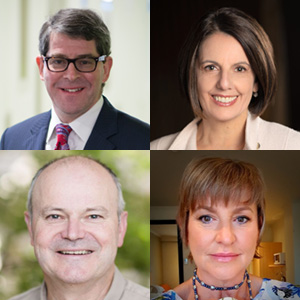It can take hundreds of years for plastic to degrade alone, but nature may already have answers to our problem. For some organisms, plastic debris offers a food source; for many others, a literal life raft. When 8 to 10 million metric tons of plastic end up in the ocean each year, some of it provides a home to entire biological communities.
The Royal Society of Victoria is delighted to congratulate Dr Ashleigh Hood, the 2022 recipient of the Phillip Law Postdoctoral Award, and the first to be awarded in the new category of Earth Sciences. Her research focuses on the co-evolution of life and planetary surface conditions over the last several billion years of Earth’s history. Ashleigh attained her PhD in geology from the University of Melbourne in 2014.
Knowledge holders and leaders from across Victoria, including Traditional Owners, gathered at the Royal Society of Victoria to discuss the challenges and opportunities for Victoria in biodiversity conservation and recovery, considering the urgent need to establish an independent Taskforce. RSV President Rob Gell framed the biodiversity crisis as “everyone’s problem.”
Australian fur seals play an important role in Australia’s marine ecosystems, particularly around Phillip Island. To better understand them, the Phillip Island Nature Parks are calling for your help.








